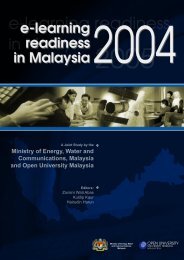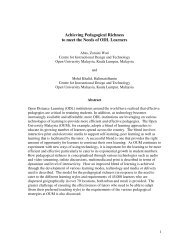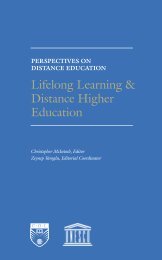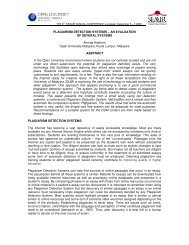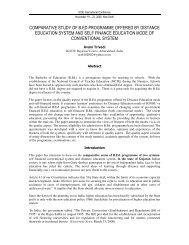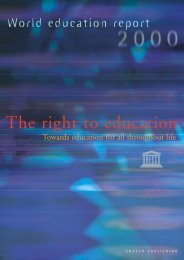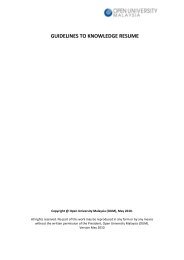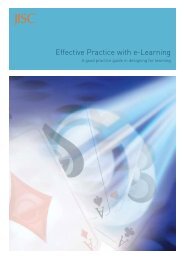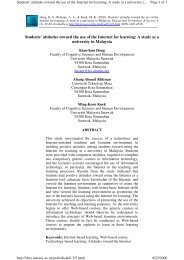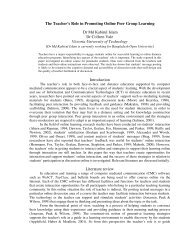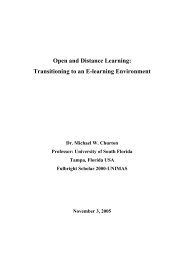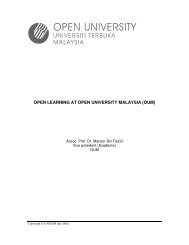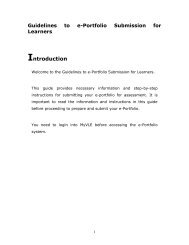The Association of Southeast Asian Institutions of Higher Learning ...
The Association of Southeast Asian Institutions of Higher Learning ...
The Association of Southeast Asian Institutions of Higher Learning ...
You also want an ePaper? Increase the reach of your titles
YUMPU automatically turns print PDFs into web optimized ePapers that Google loves.
achieved. As we struggle with the many obstacles and barriers that are constructed either in a realsense such as economics, political disagreements, or competence, or in a virtual sense with the constantand continual increase <strong>of</strong> technology--- We must always remember that more ICT, at times, is simplymore ICT and does not necessarily improve existing conditions and at times may well negativelyimpact those conditions you are trying to improve.E-learning, e-knowledge, e-economy- and e-government have placed all <strong>of</strong> us in a situationwhere we either critically address the outcomes <strong>of</strong> such ventures or meekly join the e-bandwagon andfollow the technologists to wherever they may lead us. Do you ever feel at your university that thetechnologists are directing the manner in which you, the pr<strong>of</strong>essoriate, teach your classes or conductyour research? If you do, then you are not alone- Technology seems to be controlling most agendasacross universities from around the world. Our decision is how best to use ICT to assist in meeting ourresearch and instructional responsibilities. This may seem like I am sending a message that I am not infavor <strong>of</strong> ICT or e-learning. That would be false- I am in favor <strong>of</strong> any tool that will assist me indeveloping and or enhancing my teaching capabilities and my ability to conduct research and advanceknowledge to serve people who are denied access to education and human services.<strong>The</strong>refore, my thoughts for today’s paper are how ICT can assist you the pr<strong>of</strong>essor, researcher,or university administer in developing and or enhancing your ability to provide qualitative instructionalexperiences, research, and pr<strong>of</strong>essional service at your university or in collaboration with colleaguesand students from other programs. In a short period <strong>of</strong> time, I intend to present some ideas andcomments that perhaps will assist your university in considering or at the very least to initiate dialogconcerning the use <strong>of</strong> ICT in fulfilling the outcomes <strong>of</strong> Vision 2020. I intend to present some ideasand comments that perhaps will assist universities across <strong>Southeast</strong> Asia in considering the use <strong>of</strong> ICTin fulfilling your mission and role for higher education among your citizens and meeting Vision 2020challenges.As the needs <strong>of</strong> higher education demand the development <strong>of</strong> creative and innovative educationalprograms, the application <strong>of</strong> appropriate and effective distance and e-learning methodologies provideopportunities to revisit Vision 2020 challenges. Regional as well as international trends arecontributing to the challenges <strong>of</strong> Vision 2020. <strong>The</strong> population <strong>of</strong> the world and <strong>Southeast</strong> Asia isincreasing at an exponential rate to exceed 7.2 billion people by the year 2015. Asia countries <strong>of</strong>China, India, and Indonesia are three <strong>of</strong> the largest countries in the world and their populationcontinues to escalate. Over ninety percent <strong>of</strong> global population increase will occur in developing ortransitioning countries (World fact Book, 2001). This places significant demands on countries’infrastructure, economy, and the ability to meet educational as well as human resource demands.With improved health care and medical sciences in <strong>Southeast</strong> Asia, people are living longer anddemanding improved educational services and a need for life-long learning. Human resource4




